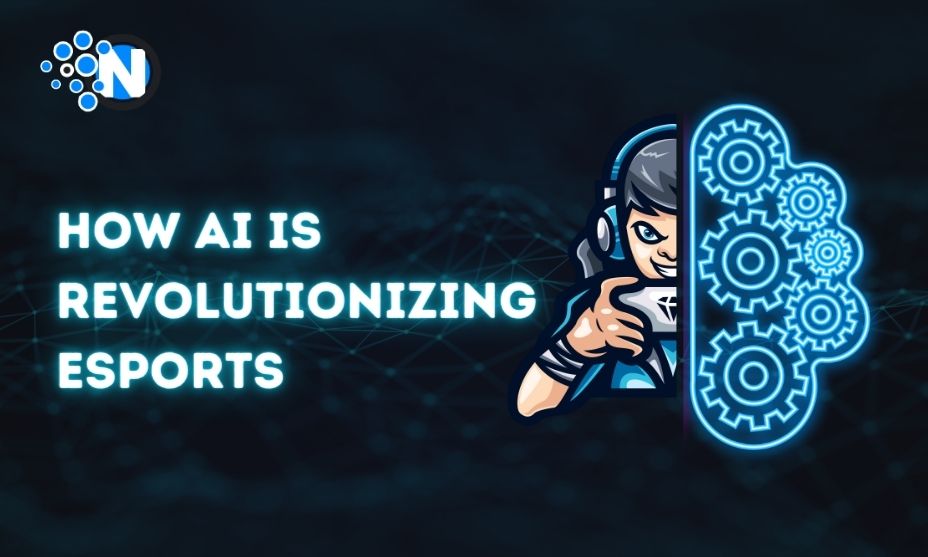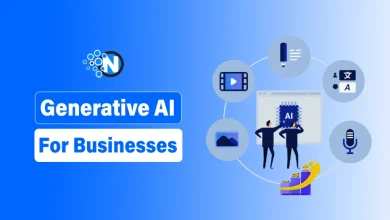How AI is Revolutionizing Esports – An Overview

The world of esports has become popular in the last few years. It is no longer just a hobby, with millions of fans tuning in for major tournaments and professional players earning massive salaries. A new wave of innovation is also sparked by this huge growth, with artificial intelligence (AI) emerging as a game-changer for the whole esports industry.
The significance of AI extends beyond just building bots. It is changing the way teams plan, players practice, and viewers enjoy their favourite games. Below, we have discussed different ways artificial intelligence is influencing the esports industry.
Role of AI in eSports
AI-powered Training Tools
In esports, the competition is intense. As every millisecond counts, players work hard to improve their skills. AI-driven training tools are turning into quite useful resources in this never-ending quest for development. These tools examine enormous volumes of gameplay data to find trends and areas where a player’s performance is lacking.
In a first-person shooter, imagine an AI watching your gameplay footage and identifying places where you could aim more accurately or move less predictably. As a result, players can train more effectively, concentrating on the areas where they will see the biggest gains.
Furthermore, AI is not limited to understanding specific players. In games like League of Legends, it can discover champion picks, team compositions, and common strategies by analyzing both the teams and the opponents. Teams can use this to create customized counterstrategies, which will give them an advantage in the next games.

AI in Esports Broadcasting and Content Creation
AI has an impact outside of the competitive world. It also transforms how fans watch or play esports. Platforms like Spree Social Casino Online exemplify this trend by providing seamless access to exciting games across various devices. AI-driven technologies have the ability to create highlight reels on their own, highlight important moments in games, and tailor information to individual viewers. If they haven’t been able to watch complete games, this enables fans to remain interested and quickly catch up on the newest action.
Furthermore, new types of esports content are being produced using AI. As an example, certain businesses are creating AI-driven analysts who can offer in-the-moment commentary during games. Even while this technology is still in its infancy, it has the power to completely transform esports broadcasting and make it more approachable and interesting for a larger audience.
AI-powered Scouting and Player Evaluation
Teams that compete in esports are always searching for the next great thing. Scouting used to rely on analysts going through hours and hours of game tape by hand. AI is expediting this procedure by evaluating players automatically. Teams can use this to find talented players who might have gone unnoticed using more conventional techniques.
Deeper analysis is possible using AI, which may examine a player’s communication abilities, clutch play, and decision-making under duress. These intangible traits are essential for success in esports, and artificial intelligence (AI) can assist in identifying players that have the mental toughness necessary to succeed on a large platform.
AI-powered Game Analysis and Prediction
Esports’ strategic component is every bit as significant as its competitive element. Teams spend hours planning their strategies, researching their opponents’ playstyles, and creating counterstrategies. AI is helping coaches by offering comprehensive game analysis. AI can analyze thousands of previous games to pinpoint successful tactics, lineup combinations, and typical errors.
This makes it possible for coaches to develop data-driven tactics that have a better probability of working. Artificial intelligence is also being utilized to forecast match results. AI models can predict statistical probability for match wins through the analysis of past data, team performance, and present trends. Although rarely infallible, these forecasts can serve as useful resources for both coaches and supporters.
The Ethical Considerations
Even while AI has a lot to offer esports, there are ethical issues to consider. In the long run, over-reliance on AI-powered training tools may impede strategic innovation and creativity. Furthermore, match prediction using AI may have an impact on betting markets and open doors for manipulation.
Striking a balance is essential to guarantee that AI enhances rather than replaces human skills. Strong laws are also required to stop AI from being abused for gambling or other immoral activities.
Challenges and Roadblocks
The road ahead is not without difficulties, though. The following are some important aspects that require attention:
Data Security and Privacy: Because AI depends so much on player data, it is critical to protect player data. To preserve player information, ethical behaviour and clear regulations are required.
Bias in AI Models: The data used to train AI models may contain biases. Inaccurate forecasts or biassed scouting methods may result from this. Reducing bias in AI development is essential to preserving an equitable and competitive esports environment.
Accessibility of AI products: At the moment, a lot of AI-powered products are pricey and unaffordable for amateur players and smaller teams. Greater access to these resources will promote more equitable competition.
Final Words
From developing gaming skills to developing effective strategies, AI is revolutionizing the game in all its aspects. It is inevitable that AI will have more to offer in the future of esports in terms of driving it to greater heights through the integration of human and machine intelligence for competitive gaming.




